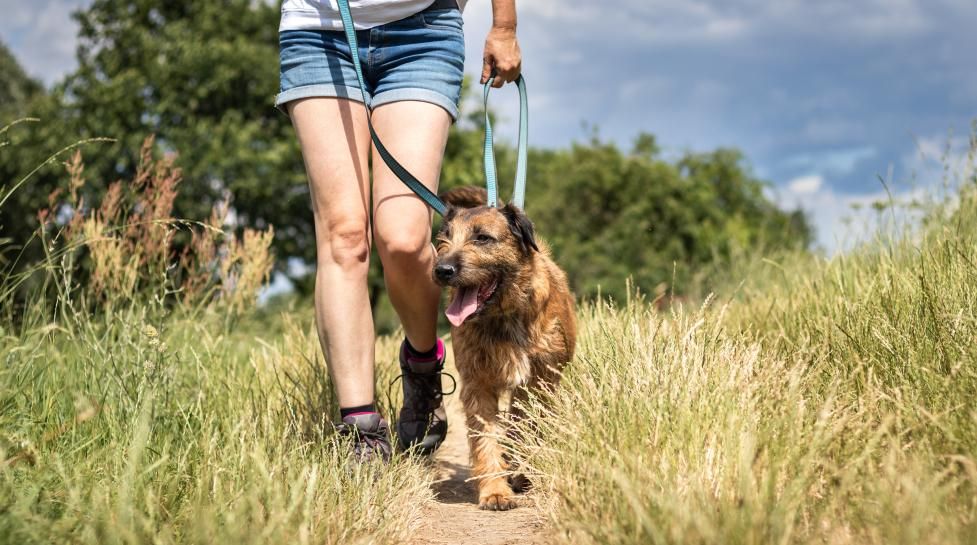
While fatal cases of dogs eating bulbs, flowers and plants are rare, it’s not uncommon to see dogs with upset stomachs after a springtime walk. Here are some plants to keep your dog away from and how being an Animal Friends customer can help you if you thought your pooch had eaten something that might be harmful for them.
Bluebells
The bulbs of Bluebells contain chemicals that lower the heart rate called “scillarens”. If a dog is exposed to or consumes scillarens expect symptoms like vomiting, acting confused, diarrhoea and lethargy.
Daffodils
These bright yellow flowers are poisonous to dogs if consumed. They will result in your pooch having an upset stomach and likely vomiting. It may also leave them feeling lethargic and unsteady on their feet. In extreme cases it can cause dogs to have seizures. Don’t let them be tempted by these beautiful blooms.
Buttercups
The juice that is within a buttercup could severely upset your dog’s digestive system while causing dermatitis if they were to consume or get the juice over their fur.
Crocuses
Blooming in the spring, this plant is a member of the Iridaceae family. Its bright petals and strong smell are perfect for any pollinators but not so great for curious pooches. If you spot these on your walks encourage your dog to avoid or risk vomiting and diarrhoea.
Poppy
The poppy has a distinctive red flower which is very pretty but also highly toxic to canines if ingested. Symptoms of poppy related toxicity are varied but could include trembling, depression, weakness, sedation and in severe cases even death. If your dog consumes this plant, contact your vet immediately.
Tulips
Spring wouldn’t be spring without tulips. They are so bright and colourful it’s hard not to smile when you see them. Unfortunately, your pooch won’t be smiling if they end up consuming them.
Hydrangeas
Especially toxic to dogs the buds, flowers and leaves of hydrangeas contain the toxic component cyanogenic glycoside. Even if your dog consumed a very small quantity, they will likely be sick.
Snowdrops
The bulbs of this plant are especially toxic to dogs. The other parts are also dangerous for our canine companions but have lower levels of toxin than the bulbs. Vomiting and diarrhoea symptoms should be mild enough, but snowdrops can also cause a slowing of the heart rate and in bad cases, fits.
What to do if your dog has consumed these toxic flowers.
If your pooch shows any signs of symptoms of poisoning seek the assistance of a vet immediately. Consumption might only lead to mild symptoms or a short period of illness but it’s always best to speak to a professional to be on the safe side. If symptoms occur at night or outside of your veterinary surgeries opening times, contact an out-of-hours clinic instead.
How will the vet treat my dog?
If the vet can identify the poison/type of plant that has been consumed they may be able to identify an antidote. However, not all poisons/toxins have antidotes so they may just treat symptoms to keep normal function of your dog’s organs until the toxins have been processed.

